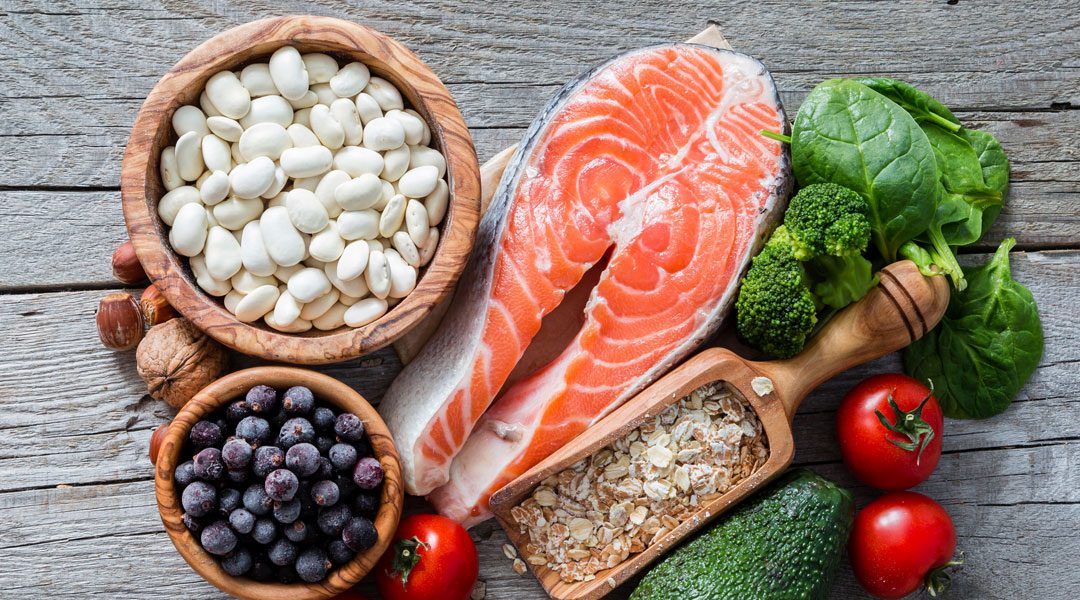Although genetics play a large role in the development for eye diseases, the development and progression of eye diseases is also influenced by our diet and other health conditions. This is because our eyes are organs, too! The ability to see is so natural and requires no effort so we can sometimes forget that our eyes need nurturing, too. By having a healthy, balanced diet and managing your health conditions, you can protect your eyesight and decrease your chances of developing eye diseases.
Health conditions that increase your risk of developing eye diseases include:
- Diabetes
- Cardiovascular disease
- High blood pressure
- Arthritis
These chronic diseases, if left uncontrolled, can start damaging the blood vessels, tissues and nerves in your eyes. This can lead to vision impairment or even blindness and predisposes you to:
- Cataracts
- Glaucoma
- Age-related macular degeneration
- Diabetic retinopathy (if you are diabetic)
So what can be done?
There is growing evidence suggesting having adequate amounts of certain nutrients can prevent or delay the onset of age-related macular degeneration and other forms of eye disease.
Lutein and zeaxanthin are carotenoids and are the main nutrients linked to macular degeneration prevention. They have antioxidant properties that help protect your cells from damage. These nutrients can’t be made in the body so it is very important that you include these in your diet!
Vitamin C, vitamin E and zinc are also antioxidants which can help prevent the progression of macular degeneration. The nutrient selenium helps your body absorb vitamin E. Omega-3 fatty acid is also linked to eye health as it helps to reduce inflammation, which plays a role in the development of many eye diseases.
Many of these nutrients can be found together in food. For example, vegetables like broccoli, and fruits like oranges contain lutein, zeaxanthin and vitamin C!
This table shows some sources of nutrients that are important for protecting your eyes:
| Lutein and Zeaxanthin | · Dark, leafy greens such as spinach and kale
· Mango, orange and kiwi fruit · Pumpkin, broccoli, peas and corn · Eggs (most absorbable source) |
| Vitamin C | · Oranges, grapefruit, kiwi fruit and strawberries
· Broccoli, Brussels sprouts and capsicum |
| Vitamin E | · Broccoli, spinach, wheat germ
· Almonds, peanut butter |
| Zinc | · Oysters, pork chops, red meat, eggs
· Chickpeas, tofu, rice bran, yoghurt |
| Omega-3 fatty acids | · Salmon, sardines, tuna
· Flaxseed, flaxseed oil, walnuts |
| Selenium | · Brazil nuts, cashew nuts
· Oysters and other seafood |
A way to ensure you are consuming enough of each nutrient is to follow a few tips:
- Aim to include a wide variety of fruit and vegetables throughout your day
- Eat fish 2-3 times a week
- Choose low GI carbohydrates as these are usually less processed
- Try cooking vegetables to increase the absorption of lutein and zeaxanthin
- Consider having eggs for breakfast (the most important meal of the day) as they are the most absorbable source of lutein and zeaxanthin
- Include healthy fats with each meal as fat allows you to absorb some nutrients better
- Drink plenty of water as this helps your body stay hydrated and helps prevent dry eyes
Alternatively, you can use multivitamin or fish oil supplements to help you meet your needs. However, please consult with your doctor beforehand to make sure they are not interacting with other medications that you may be taking. If you have any questions regarding your nutritional needs and how to meet them, you can also consult a dietitian.
We recommend regular eye tests at least once every 12 months for people who currently have, or have a family history of eye diseases and chronic health condition to keep a tab on their eye health.
Please call on 3345 3383 to book an appointment to discuss the most suitable options for you.
